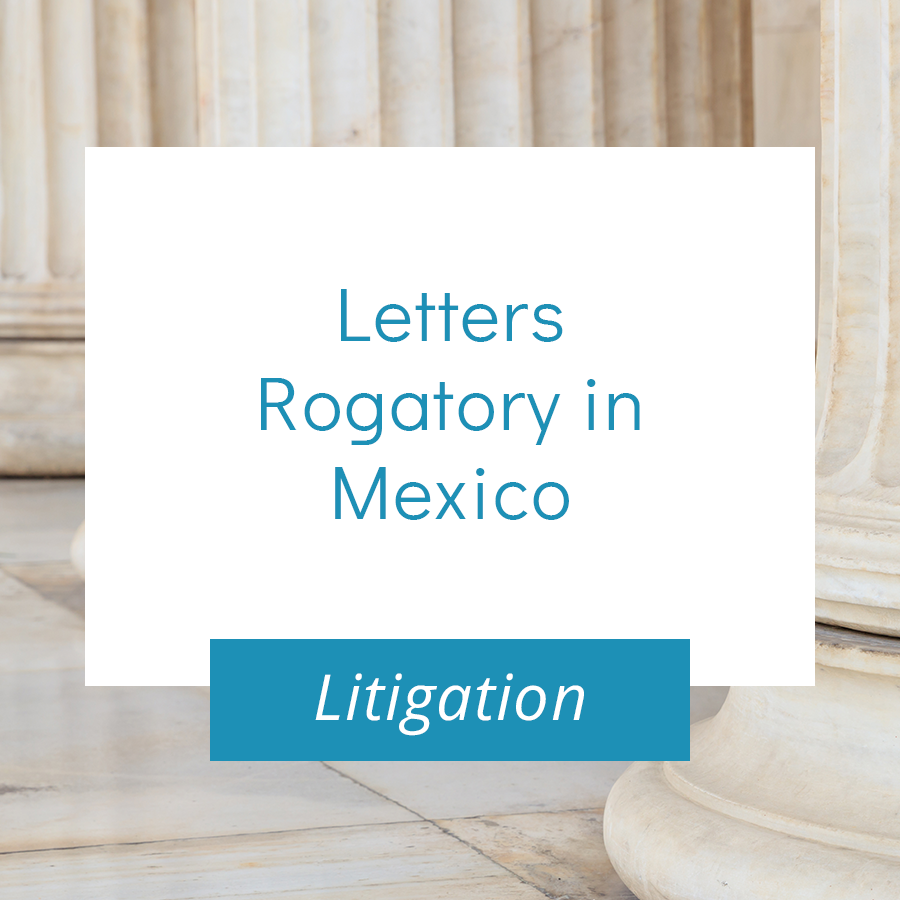Letters Rogatory vs. Mutual Legal Aid Treaties: Key Differences Explained
Letters Rogatory vs. Mutual Legal Aid Treaties: Key Differences Explained
Blog Article
Letters Rogatory Explained: Facilitating Legal Participation In Between Countries

Definition of Letters Rogatory
Letters rogatory are official requests made by a court in one territory to a court in another territory, looking for aid in acquiring proof or testament for a legal action. This step-by-step system is necessary in the context of global legislation, where legal systems might differ, and cross-border teamwork is required. Letters rogatory assist in the gathering of details that might be essential for settling cases, especially in instances involving complicated multinational concerns.
Typically, these demands occur in civil, criminal, or management issues where a party needs proof that is situated outside the territory of the asking for court. The letters work as a method to make certain that the concepts of due process are supported, enabling courts to gain access to evidence that might or else stay inaccessible because of geographic or lawful barriers.
Making use of letters rogatory is controlled by international treaties, reciprocal arrangements, or residential legislations, which mark the procedures and responsibilities of the courts involved. It is necessary to note that the implementation of such requests is not guaranteed; they depend on the laws and practices of the territory obtaining the letter. Thus, letters rogatory are a critical tool for fostering lawful collaboration and making sure justice throughout boundaries.
The Process of Issuing Letters Rogatory
Issuing letters rogatory includes a structured process that ensures conformity with both residential and global legal criteria. The asking for party, commonly a court or legal authority, prepares an official request detailing the nature of the support sought, the proof or details required, and the lawful basis for the demand. This record must be accurate to facilitate understanding by the foreign jurisdiction.

The next action includes sending the letters rogatory to the designated international authority. This is often done with diplomatic networks or worldwide legal aid frameworks, making sure that the request is obtained and acknowledged by the foreign court. The foreign court after that refines the request according to its own legal procedures, inevitably reacting to the asking for party with the sought-after details or proof, therefore facilitating international legal cooperation.
Relevance in International Regulation
The significance of letters rogatory in international law can not be overemphasized, as they act as a vital system for judicial collaboration across boundaries. These formal requests for aid in legal matters enable courts in click resources one jurisdiction to look for information, proof, or the existence of witnesses from another territory, thereby promoting the administration of justice in global situations.
Letters rogatory are specifically crucial in the context of globalization, where lawful conflicts often extend multiple nations. They enable the collection of evidence that could otherwise be inaccessible, making sure that lawful process are notified and reasonable. By cultivating cooperation between judicial systems, letters rogatory aid support the regulation of law and advertise common respect among countries.
Moreover, making use of letters rogatory shows a commitment to worldwide standards and concepts of collaboration, showing the interconnected nature of modern-day legal methods. It illustrates the value of sticking to recognized procedures and treaties, such as the Hague Convention, which gives a structure for these requests - Letters rogatory. Ultimately, letters rogatory improve the efficiency of lawful procedures, ensuring that justice is not impeded by geographical limits
Obstacles and Limitations
Regardless of their importance, letters rogatory face several difficulties and restrictions that can hamper their performance. One key concern is the varying legal frameworks and procedures across jurisdictions, which can result in misunderstandings and delays in the execution of requests. Different countries may have distinct requirements for the validity of letters rogatory, complicating the process further.
Furthermore, the usually lengthy nature of global lawful participation can prevent prompt accessibility to proof or witnesses. This hold-up may negatively affect legal proceedings Continued or recurring examinations, particularly in cases requiring urgent action. Furthermore, the lack of sources and training in some territories can cause inadequate handling of requests, resulting in poor or insufficient reactions.
Nations with much less official lawful systems might have a hard time to comply with the step-by-step rigor anticipated in letters rogatory. These obstacles necessitate constant discussion and reform to enhance the efficiency of letters rogatory in legal teamwork.
Study and Instances

Conversely, obstacles can develop, as seen in an instance including a European nation looking for proof in a recurring criminal matter from a non-EU nation - Letters rogatory. The process was delayed as a result of bureaucratic difficulties and varying legal criteria, ultimately impeding the examination
These instances highlight that while letters rogatory can help with worldwide participation and expedite legal procedures, they likewise highlight the demand for clear interaction and understanding of lawful frameworks between countries. Such study emphasize the relevance of refining this device to enhance efficiency and effectiveness in global legal matters.
Final Thought
In summary, letters rogatory work as a crucial device for promoting lawful collaboration in between nations, ensuring the collection of proof and statement across jurisdictions. Their importance in international legislation can not be overemphasized, as they advertise due procedure and improve the effectiveness of cross-border lawful proceedings. Challenges such as differing political stress and lawful structures might prevent their performance. Proceeded efforts to enhance the procedure and simplify are essential for cultivating stronger international judicial partnership.
Letters rogatory are official demands made by a court in one territory to a court in one more territory, looking for support in obtaining evidence or testament for a legal case. The requesting celebration, typically a court or lawful authority, composes an official request outlining the nature of the help looked for, the evidence or information needed, and the lawful basis for the request. The foreign court after that processes the request according to its own lawful why not look here procedures, ultimately responding to the asking for celebration with the in-demand information or evidence, hence facilitating international legal collaboration.
Furthermore, the use of letters rogatory demonstrates a commitment to international standards and concepts of teamwork, reflecting the interconnected nature of contemporary legal practices.Worldwide legal teamwork through letters rogatory is not without its real-world ramifications, as highlighted by various instance researches that highlight both challenges and successes.
Report this page